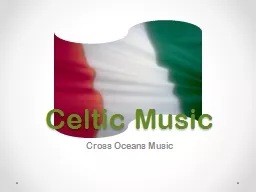PPT-Continents and Oceans Africa
Author : myesha-ticknor | Published Date : 2018-02-01
Second Largest Continent over 11 million square miles 54 Countries 800 Million People Antarctica The coldest place on Earth The South Pole is here No permanent population
Presentation Embed Code
Download Presentation
Download Presentation The PPT/PDF document "Continents and Oceans Africa" is the property of its rightful owner. Permission is granted to download and print the materials on this website for personal, non-commercial use only, and to display it on your personal computer provided you do not modify the materials and that you retain all copyright notices contained in the materials. By downloading content from our website, you accept the terms of this agreement.
Continents and Oceans Africa: Transcript
Download Rules Of Document
"Continents and Oceans Africa"The content belongs to its owner. You may download and print it for personal use, without modification, and keep all copyright notices. By downloading, you agree to these terms.
Related Documents














